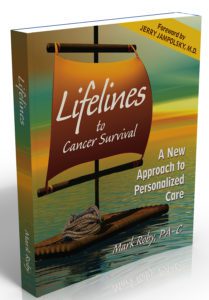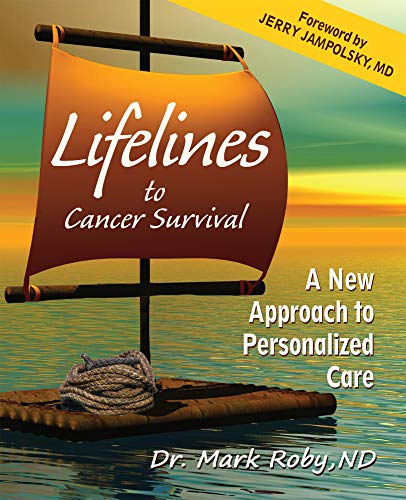Your Tumor Is as Unique as Your Fingerprint
Many patients don’t realize that the secret to their survival lies in learning as much as they can about their tumor. Today there are many technologies available for researching one’s tumor. They include molecular profiling, chemosensitivity assays, next generation sequencing ( NGS), and using animal surrogates as stand-ins for humans. These technologies may help a clinician assess their tumor’s response or lack of response to many potentially lifesaving therapies. Unfortunately, a large percentage of patients are neither aware or offered these options. This is very unfortunate, and I hope that “Lifeline to Cancer Survival” can help change the current landscape.
An accurate tissue and molecular/genetic diagnosis can mean the difference between life and death. A significant percentage of cancer patients today are diagnosed and treated by simple, histological modalities ( originating in the mid-20th century ) that are based on morphology ( form of the tumor and cancer cell ) and the organ of origin. What many patients don’t understand is that each person’s tumor is different and unique. Furthermore, tests such as molecular profiles, biomarkers, and TumorGrafts could unlock potentially lifesaving information to extend survival times.
TumorGrafts are portions of your tumor that are implanted in immunocompromised mice. After the tumors grow, the newer and older therapies are then tested for a resistant or a positive response. It’s my opinion that thousands, of lives could be saved by using the cutting-edge research that is available right now. That is why many medical experts, researchers, and patients want the standard of care to change.
We, as patients, must understand that each of our tumors has a unique genetic fingerprint, which could potentially guide your clinician towards safer, more effective treatments with better outcomes. Many recent studies prove this . ( Even newer clinical trial studies ) There have been numerous news articles and academic papers discussing the transformation in the field of oncology. Many medical professionals and patients alike are calling for change.
Dr. Stan Kaye is the head of the drug development unit at the Royal Marsden hospital is Sutton, England, and the chairman of the Institute of Cancer Research’s section of medicine. Here is what Dr. Kaye has to say:
” We are genuinely moving from chemotherapy to much smarter treatments based on a better understanding of what causes cancer and what distinguishes cancer cells from normal cells. This knowledge is being turned into new treatments, often given as tablets that make people’s tumors shrink, and it’s just terrific. So in the next few years, there’s going to be an increasing understanding that you don’t treat all people with a particular type of cancer the same way, and individualized treatments will increasingly take over ”
The article goes on to discuss a new research center called the Centre for Molecular Biology in England that will hopefully speed up the process of introducing personalized medicine into daily patient care. ( Simon Crompton, ” A Simple Doctor’s Quest to Improve on Today’s Treatments” Cancer World, March/April, 2011 )
Here in the United States, I personally have seen numerous patients ( including myself ) benefit from the modalities discussed in my work, including molecular profiles, tumor bio-markers and targeted anti-cancer nutrition. Cancer patients across the country would be ecstatic if these strategies would be included in the standard of care. Furthermore, I know these approaches would lead to safer, more effective therapies and longer survival times.
the United States, I personally have seen numerous patients ( including myself ) benefit from the modalities discussed in my work, including molecular profiles, tumor bio-markers and targeted anti-cancer nutrition. Cancer patients across the country would be ecstatic if these strategies would be included in the standard of care. Furthermore, I know these approaches would lead to safer, more effective therapies and longer survival times.

